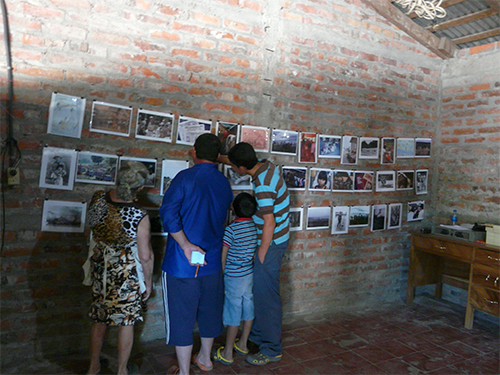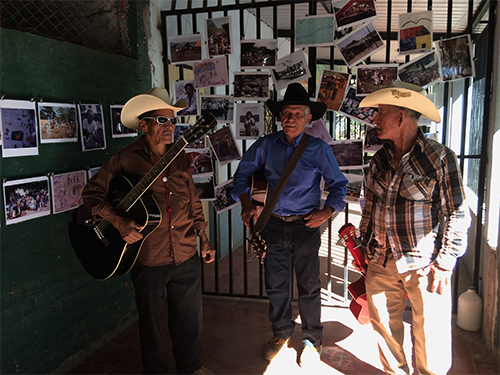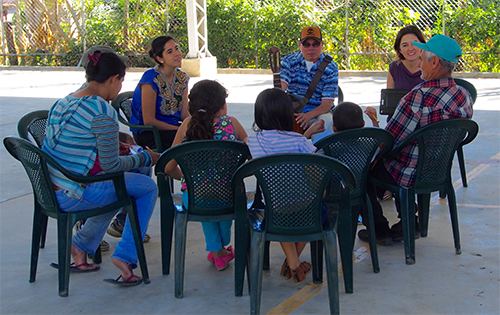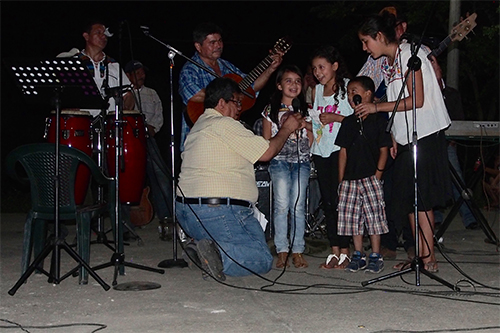Abrams Ansari and Ocádiz travel to El Salvador to participate in interdisciplinary research project
From January 5 to 15, 2017, Music History professor Emily Abrams Ansari and Music Education grad student Gabriela Ocádiz travelled to El Salvador to participate in an exciting new interdisciplinary, international collaborative research project. Led by Amanda Grzyb, a professor in the Faculty of Information and Media Studies, the SSHRC and FRDF-funded project seeks to accompany former refugees in the creation of a collective history of the Salvadoran refugee camps in Honduras, created as a result of El Salvador’s Civil war during the 1980s.
With a group of graduate student researchers from across Western and students and faculty from Montana State University, Ansari, Grzyb and Ocádiz first joined 800 hundred former Salvadoran refugees on a commemorative return trip to one of the Honduran camps where they lived during the war, called Mesa Grande. They then worked with local collaborators in the repopulated Salvadoran village of Milingo to mount an exhibition of photographs of Mesa Grande taken by aid workers and others who visited the camps from the United States and Canada. Those who had lived in these camps had never seen these photos before—photos of their loved ones, of their activities, and even photos of childrens’ drawings made in camp. The research team and their local collaborators used these photos, as well as a set of recordings of songs that was made in the Mesa Grande camp, as a starting point for conversations in a series of workshops on different topics, including music, asking people about their memories of the war and their time in the camp.
Photos



 Ocádiz helps young people in a performance of a song written during the war. (Research funded by SSHRC and Western's FRDF.)
Ocádiz helps young people in a performance of a song written during the war. (Research funded by SSHRC and Western's FRDF.)
